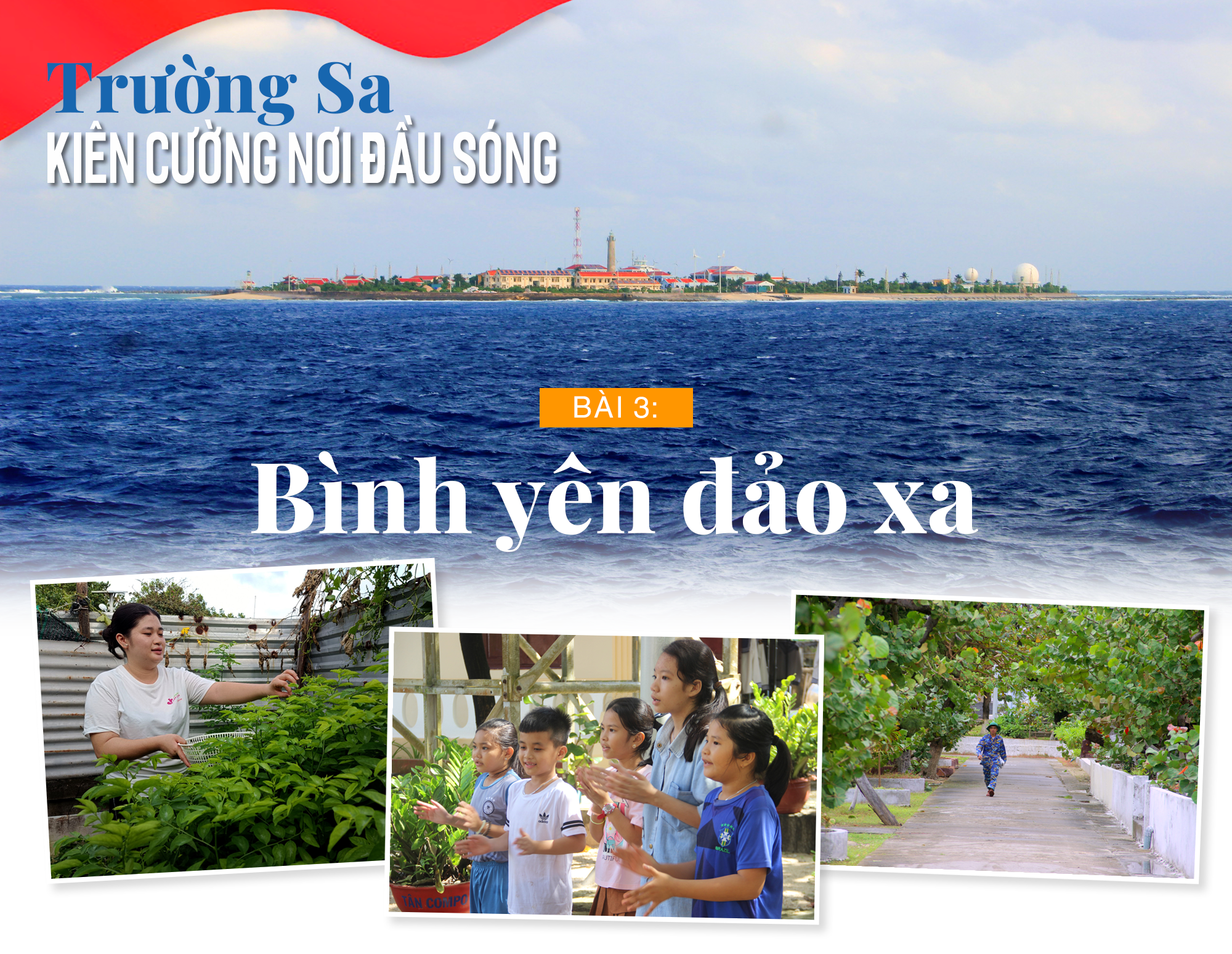
Despite facing many difficulties and shortages compared to the mainland, however, the officers, soldiers and people on the islands of Truong Sa archipelago all strive to increase production, stabilize their lives, build strong islands, and contribute to protecting the sacred sea and islands of the Fatherland.


In the middle of the ocean, with only sunshine and salty sea breeze all year round, often suffering from many natural disasters, however, the officers and soldiers on the islands of Truong Sa archipelago always promote the qualities of Navy soldiers, overcoming the storms to promote production and livestock farming, contributing to improving and raising living standards. Besides the task of training and combat readiness, increasing production is also a task that has been regularly and continuously deployed for many years.
Visiting the concentrated farming area on Sinh Ton Island, before our eyes is a large garden with a greenhouse and surrounding fence, about 1,000m wide.2, lush green with a variety of vegetables. Surprisingly, in such harsh weather conditions, mustard greens, water spinach, Malabar spinach, amaranth… still grow green and flourish, defying the storms. This achievement is the result of the tireless efforts of the officers and soldiers on Sinh Ton Island.
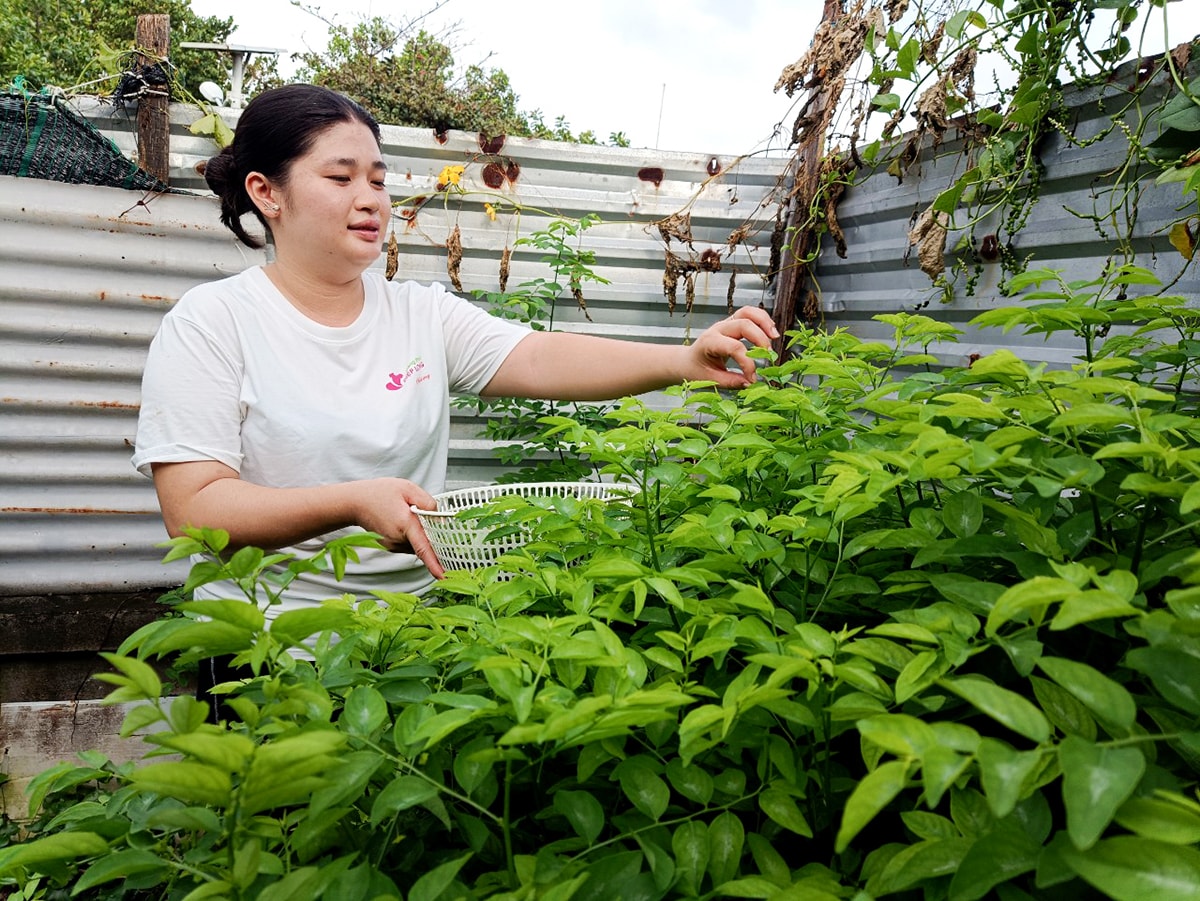
Lieutenant Colonel Dinh Cao Toan - Political Commissar of Sinh Ton Island shared: Sinh Ton Island also faces difficulties in production similar to the islands in Truong Sa archipelago such as: harsh weather, lack of fresh water, saline soil... However, officers and soldiers are not afraid of hardship, trying to turn barren land into arable land by many methods such as: stretching tarpaulins, installing rigs, carefully covering to limit saltwater intrusion, regularly plowing and improving the soil, storing rainwater to water vegetables, using trays and pots to grow vegetables in many areas...
Thanks to that, the meals of officers and soldiers on the island are guaranteed to have local food sources, especially green vegetables.
In Truong Sa, mustard fields and vegetable gardens are surrounded by walls 1 meter high or more to block wind and sand. Many soldiers even jokingly say that this is a unique feature of the vegetable growing "profession" in Truong Sa that no other vegetable growing village on the mainland has. When seeing the lush green vegetable beds in the brick walls, everyone is amazed and admires the spirit of the soldiers in the middle of a remote island. The land on the island is mainly salty coral sand, only suitable for brackish water plants such as: Phong ba, mu u, bang sqau, casuarina... Besides, the weather is always harsh, there are months when there is no rain, so for vegetables to grow and develop in such weather is a process of drawing on the experience and efforts of the soldiers.
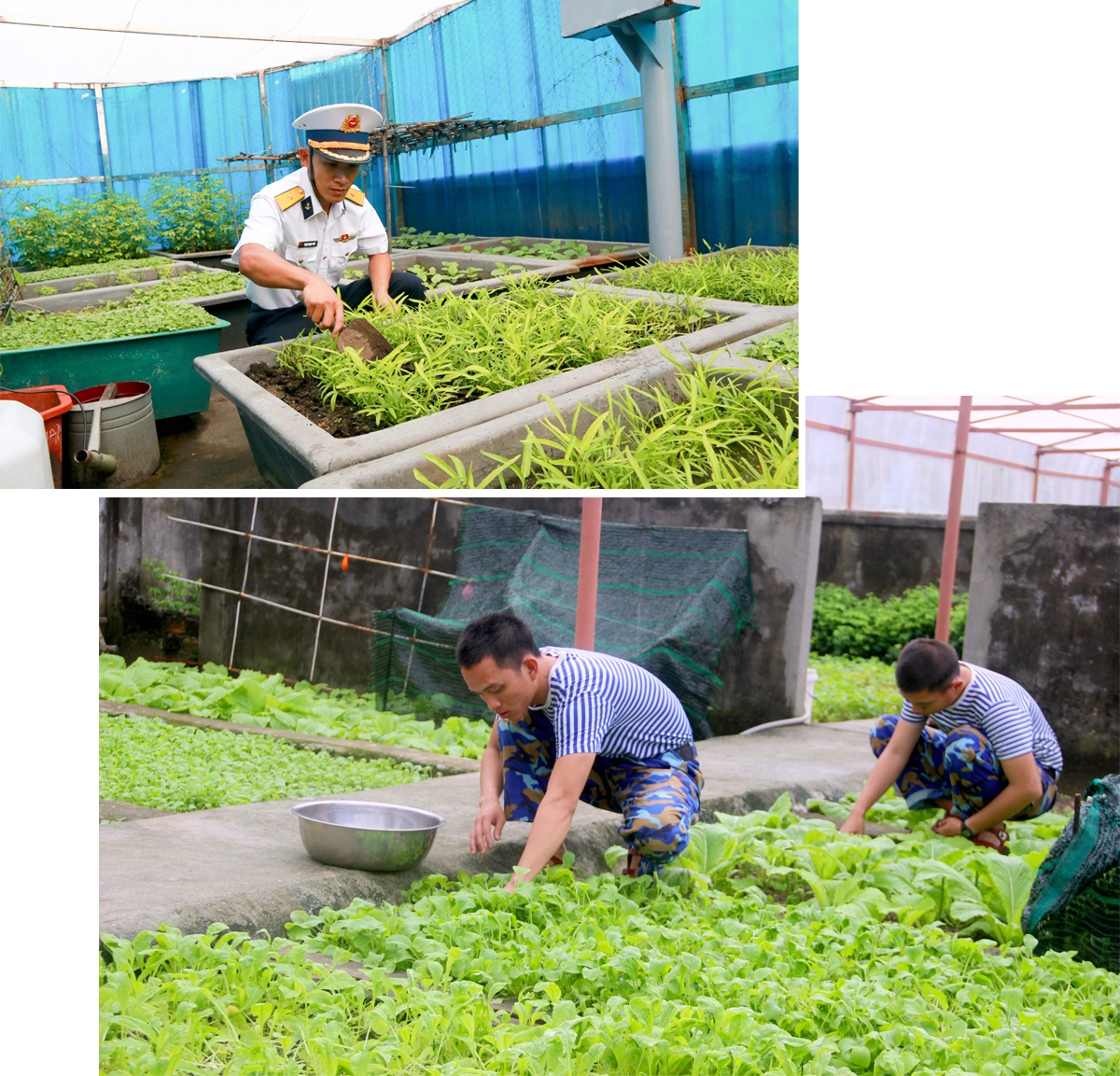
Captain Dam Minh Anh, on duty at Song Tu Tay Island, emphasized: Vegetable seeds, planting trays, and fertilizers must all be sent from the mainland, so we cherish them and use them sparingly. In growing vegetables, fresh water is the most important, however, on remote islands, surrounded by salty seas, fresh water is the scarcest. Water after washing vegetables, washing rice, bathing, etc. is kept by soldiers and used to water vegetables, because everyone understands how precious fresh water is in the middle of the sea and islands. When not on duty, soldiers will take turns planting and caring for vegetables every day. Especially during the rainy and stormy season, vegetable trays are carefully preserved and covered, or can be harvested early to avoid damage if a storm hits.
Farming is difficult, raising livestock on the island is even more difficult. Visiting the livestock areas on Song Tu Tay and Sinh Ton islands, we saw that the pigs, chickens, ducks, etc. were carefully taken care of by the soldiers. The livestock barns were built closed, sheltered from the wind and waves. Sharing their experiences of raising livestock on the island, the soldiers said: In the past, when livestock were transported from the mainland, most of them could not survive the harsh weather, so it was most important to help the livestock adapt to the living environment on the island from a young age. Chicken eggs brought from the mainland were hatched, and pigs were raised from the time they were weaned from their mothers, so that they could gradually grow up and get used to the weather and environment in Truong Sa. Thanks to that, the rate of livestock dying during the care process has decreased significantly compared to before.
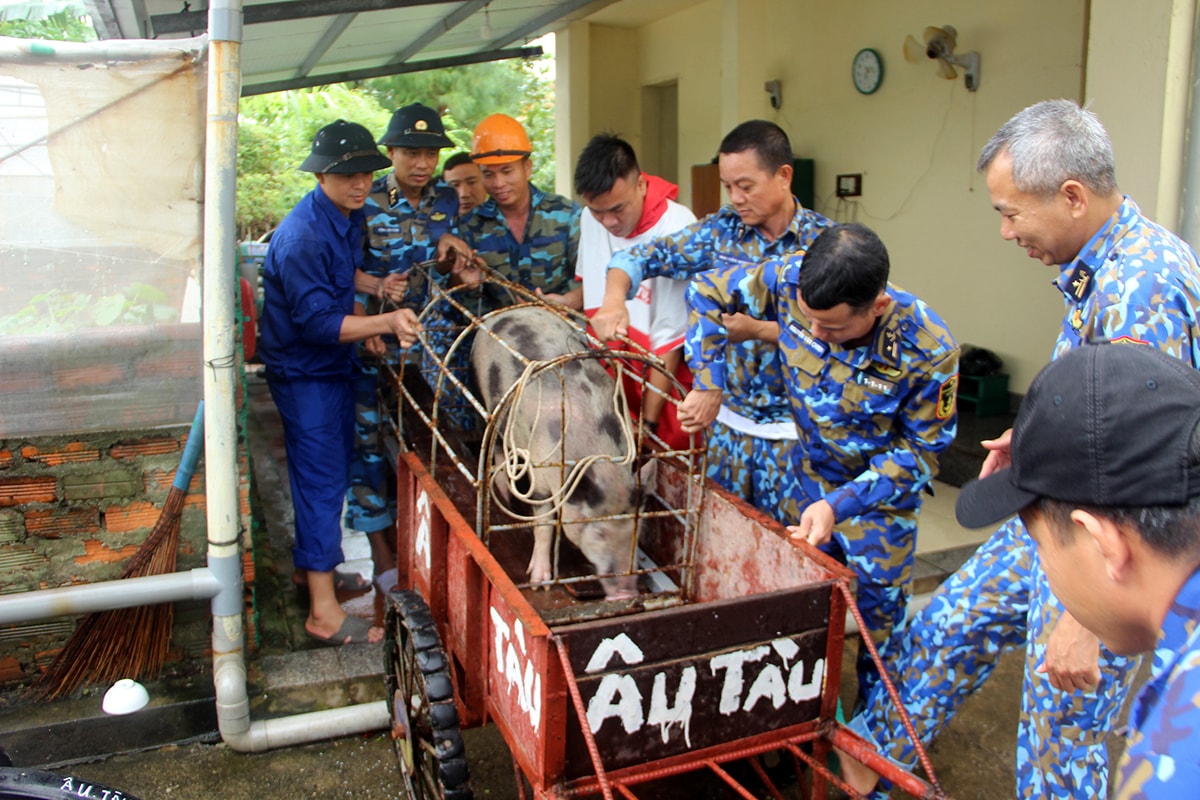
In addition to careful care, the island soldiers also pay attention to environmental protection in livestock farming. The barns are always cleaned by soldiers in turn. Disease prevention and control work is always ensured, especially in the rainy season, the barns are carefully covered and sealed. Thanks to these efforts, the livestock on the islands have now developed stably. In the middle of the vast ocean, the sound of roosters crowing every morning makes everyone feel at home.

Setting foot on the island communes of Song Tu Tay or Sinh Ton, what impressed us were the innocent eyes and smiles of the children on the remote islands. Here, there are no smartphones or social networks like on the mainland. The children cling to each other, frolicking happily under the shade of the maple trees, playing traditional games such as o an quan, skipping rope, hide and seek, etc. Life is carefree, not tempted by smart devices like the children on the mainland.
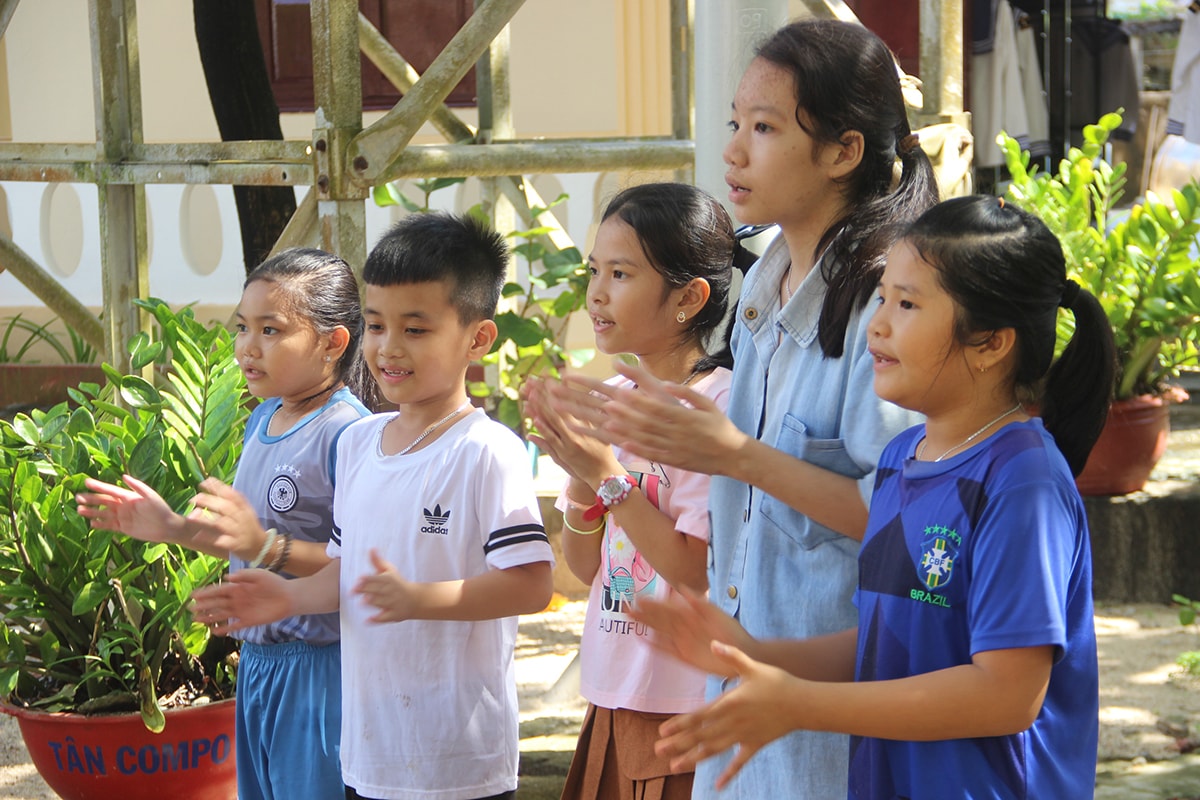
In the stormy weather conditions of the remote island, ensuring the health of the soldiers and people on the island is also a top priority. Officers, soldiers or fishermen who come to the island are all regularly examined at the infirmary. Major Nguyen Van Truong, Chief of the infirmary of Song Tu Tay Island, said: “Due to the harsh weather, especially during the changing seasons, the health of people living on the island is often affected. Many people who have just arrived on the island are not used to the environment, so they often have problems with skin and digestion. We all support medical examination and treatment wholeheartedly. However, due to the lack of facilities and equipment as on the mainland, serious cases are still forced to be brought back to the mainland for treatment…”.
Joining us on train 490 to return to the mainland after 1 year of reinforcement at Song Tu Tay Infirmary, Lieutenant Colonel, Doctor Nguyen Cao Vinh, who has just completed his work on Song Tu Tay Island, recalled: The phase of preventing and fighting the Covid-19 epidemic on the mainland was difficult, on the island it was even more difficult because if the epidemic spreads, the medical conditions on the island will be difficult to meet. Fortunately, all officers, soldiers and people on the island strictly followed the epidemic prevention measures so their health was guaranteed. In the case of going to the island, they were always tested for Covid-19 promptly and isolated if they had symptoms.
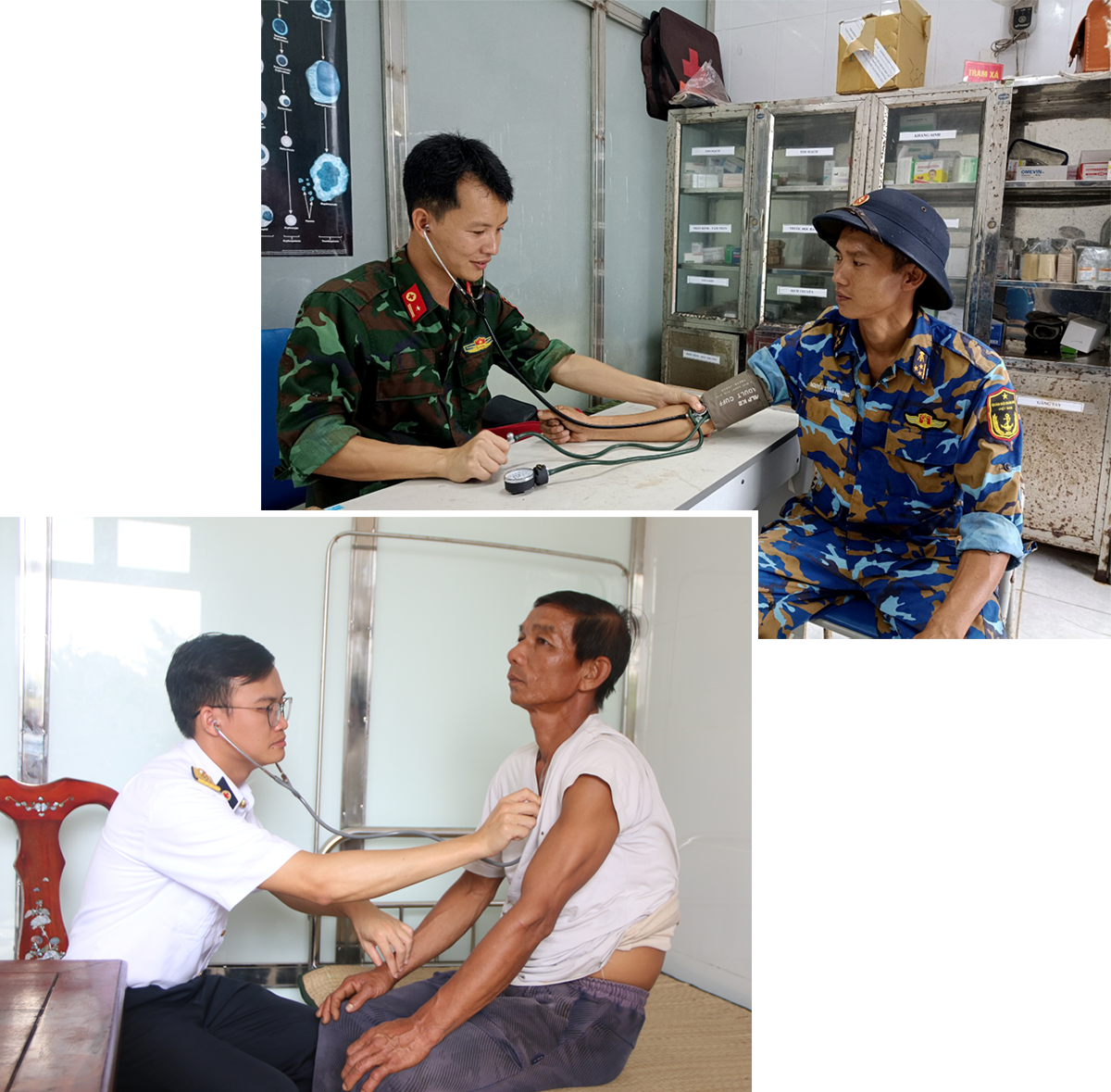
Not only examining and treating soldiers and civilians on the island, the doctors at the infirmary also promptly treated fishermen who fell ill while fishing at sea. “Many fishermen who had been at sea for long periods of time, far from the mainland, and could not return to shore for treatment, came to the island to ask us to examine and treat them. After they returned, they called to thank us, which moved us very much…”, shared Senior Lieutenant Hoang Xuan Bao, Chief of the infirmary on Sinh Ton Island.
Meeting Mr. Nguyen Van Hoa, residing in Tuy Hoa City, Phu Yen Province, while he was coming for a check-up at Sinh Ton Island Clinic, we were told by Mr. Hoa: He works as a tuna fisherman, each time he goes out to sea it usually lasts 2-4 months before returning to the mainland. Because of drifting at sea, there are often times when he gets sick without warning, instead of having to run to the mainland which is a very long distance, when he gets sick, fishermen often go to the islands to ask doctors and nurses on the island to examine him, which is very convenient. About 10 days ago, Mr. Hoa had a severe stomachache, thinking it was appendicitis so he went to Sinh Ton Island to see a doctor, but fortunately he only had kidney pain, after examining and giving him medicine, the doctor here made an appointment for him to come back for a check-up today.
“Every time we enter the island, not only do we receive fresh water and vegetables from the officers and soldiers, but we also receive free health check-ups, which makes us, the fishermen who spend all year at sea, feel very secure,” Mr. Hoa shared.
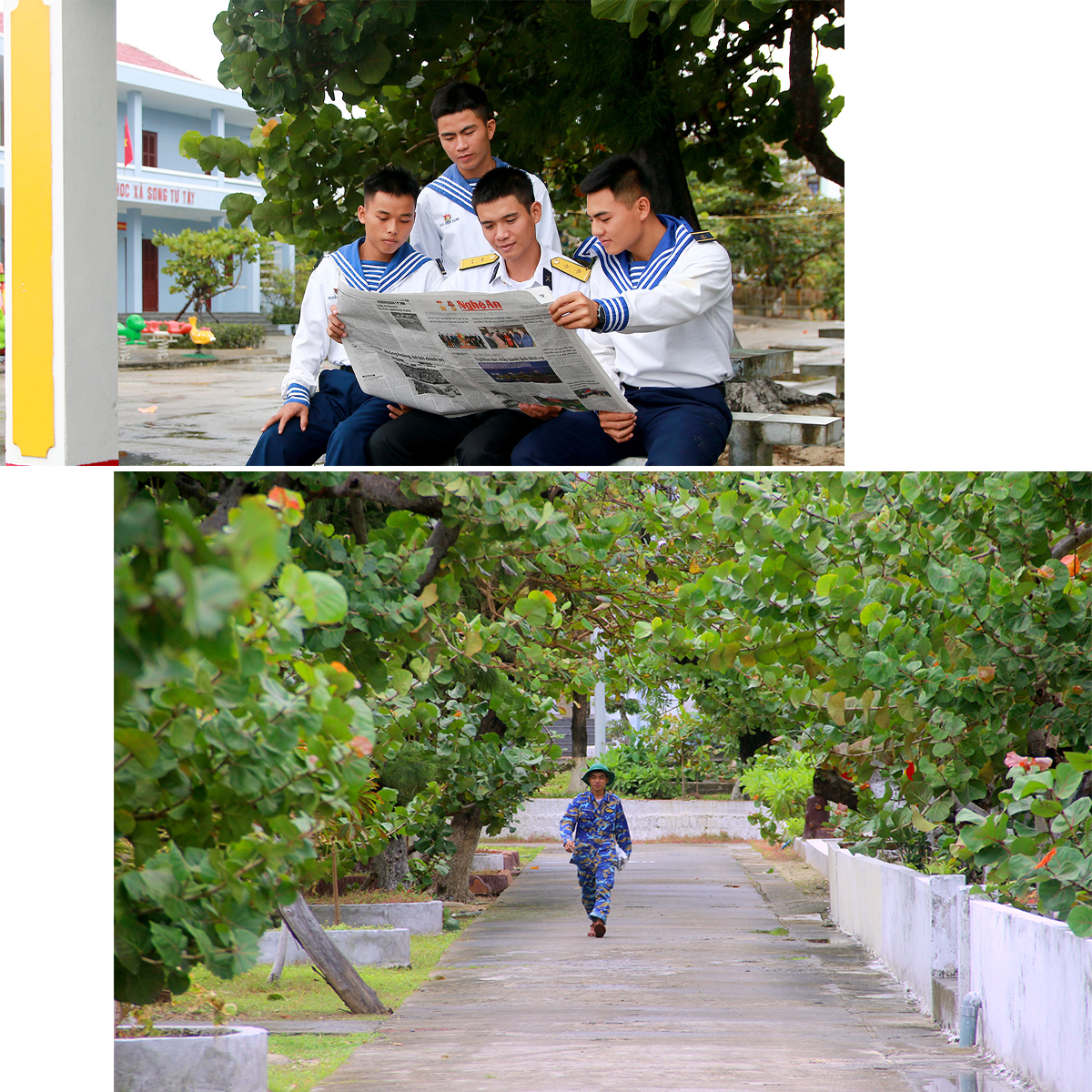
Besides training and increasing production, the spiritual life of the soldiers and people on the island is also very rich. In the middle of the vast ocean, peaceful pagodas bearing the spiritual cultural beauty of the Vietnamese people have added spirit to the soldiers and people at the forefront of the Fatherland. Truong Sa island district currently has 9 pagodas, mainly located on the floating islands such as: Truong Sa Lon, Song Tu Tay, Sinh Ton, Son Ca, Phan Vinh... The pagodas all have curved roofs, tiled roofs, three shrines, shrines and altars to heroes and martyrs.
Monk Thich Nhat Anh, abbot of Song Tu Tay Pagoda, shared: “Over the years, the pagoda has been a regular destination for soldiers and civilians living and working on the island. In addition, fishermen often stop by to burn incense and pray when entering the ports. On the first and fifteenth days of the lunar month, Tet, etc., people on the island come to the pagoda to pray for favorable weather, prosperity and peace for the country, and family peace and happiness. Not only the people, but also soldiers often go to the pagoda to worship Buddha after training and working hours.
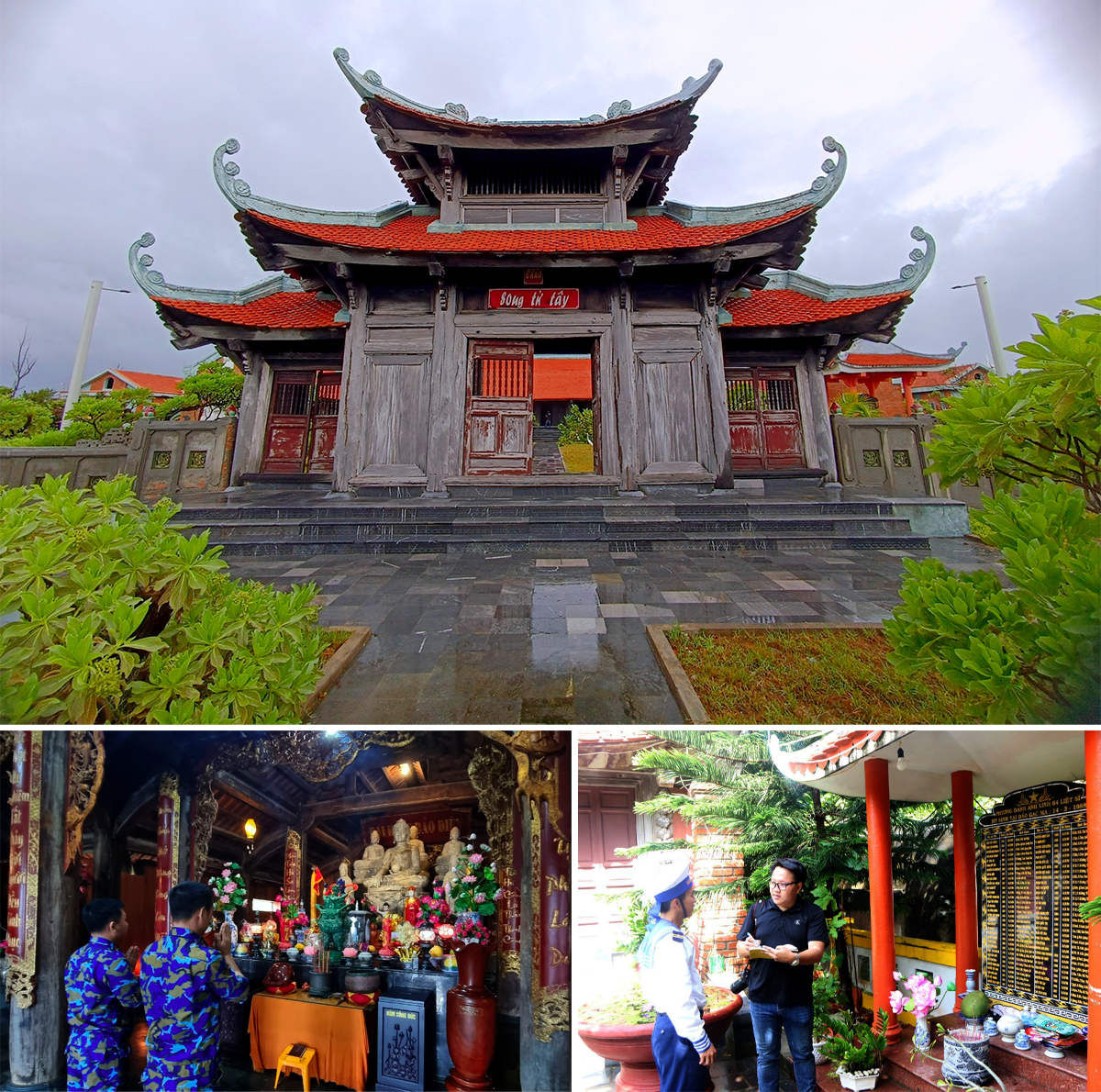
Although we did not have much time on the island, we were able to fully feel the peaceful pace of life here. No noise, no bustle, no crowded vehicles, only bicycles whizzing by under the green leaves of the wind and the square leaves and smiles always visible on the faces of the soldiers and people on the island. Walking on the island, hearing the children studying, the quiet sound of the temple bells made the scene even more peaceful. At the end of the year, the soldiers and people on the island also organized many traditional recreational activities such as tug of war, picking democratic flowers, wrapping cakes... to encourage and cheer up the spirit of the officers and soldiers to feel secure in their task of firmly protecting the sovereignty of the beloved sea and islands of the Fatherland.
